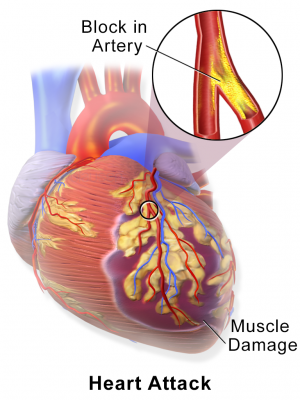In-depth analysis of existing and robust databases guides new thinking around cancer and cardiovascular disease

A new, robustly detailed retrospective cohort study on the incidence of cardiovascular disease (CVD) in more than 4,500,000 adult cancer patients published today in JACC: CardioOncology.
Clinical trials in oncology generally exclude patients with CVD, and randomized controlled trials on CVD generally do not include detailed cancer-related information. In this study, researchers make it apparent that the growing and unmet medical needs of cardio-oncology patients demand a new methodology to meet them.
"As the life expectancy of cancer patients increases, so does the likelihood of developing other illnesses after that diagnosis," said Ian Paterson, MD, first author of the study and professor of medicine at the University of Alberta. "Our findings highlight the need for an even more collaborative approach to health care for cancer patients and survivors."
The authors found that regardless of the cancer site, a new cancer diagnosis presents a significantly higher risk of cardiovascular mortality, heart failure, stroke or pulmonary embolism, especially in patients with genitourinary, thoracic, hematological and gastrointestinal cancers.
The causal relationship between CVD and the patient, cancer and treatment remains controversial. The primary elements of that relationship are that each patient presents specific and multifaceted risk factors for CVD; cancer itself is impacted by patients' physical and mental health, often exacerbated by socioeconomic circumstances; and the course of each patient's cancer treatment.
Shared risk factors among CVD and cancer include smoking, obesity, diabetes and other comorbidities, and previous studies have shown that the incidence of developing these comorbidities increases after cancer diagnosis as life expectancy increases.
The study compared newly diagnosed cancer patients and participants without cancer to help determine the risk of subsequent cardiovascular events. Those events include death, myocardial infarction, stroke, heart failure and pulmonary embolism in each group. The researchers created a time-to-event survival model adjusted for sociodemographic data and comorbidities.
The model is particularly robust in that it includes large administrative databases with validated risk and outcome indicators. Several health data repositories in Alberta, Canada, were utilized to create an extraordinarily large, population-based cohort of participants with extensive cancer and cardiovascular events.
"Our study has several novel aspects when compared to prior studies, which typically included one cancer site only," said Marcello Tonelli, MD, SM MSc, senior author of the study and professor of medicine at the University of Calgary. "Ours is uniquely comprehensive in that it includes data on site, stage and time from diagnosis, with evaluation of other relevant and interesting cardiovascular outcomes."
More information: D. Ian Paterson et al, Incident Cardiovascular Disease Among Adults With Cancer: A Population-Based Cohort Study, JACC: CardioOncology (2022). DOI: 10.1016/j.jaccao.2022.01.100

















